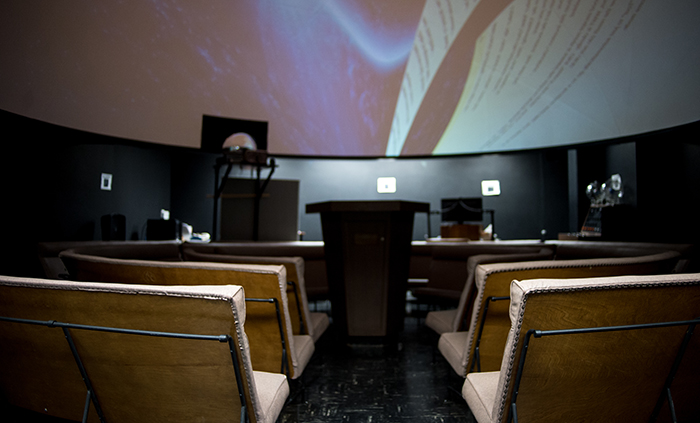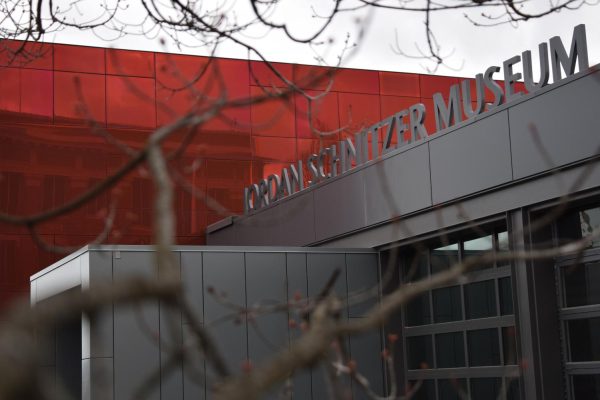The Apollo program presentation parallels with historic plantetarium
LUKE HOLLISTER | The Daily Evergreen
The front entrance of WSU Planetarium where viewers will attend “Magnificent Desolation.”
May 24, 2017
The WSU Planetarium is hosting a public show, titled “Magnificent Desolation,” which discusses the Apollo missions and why the program was ultimately canceled.
Throughout the 1960s, the Apollo program took to the skies and lit up millions of televisions nationwide. Seventeen missions sent spaceships rocketing toward the moon, and six landed successfully, the first being the iconic Apollo 11 that made Neil Armstrong and Buzz Aldrin the first humans to set foot on the moon, according to NASA’s online archives.
Jess Jones, a member of the Palouse Astronomical Society and presenter of “Magnificent Desolation,” spent several months of her free time researching and putting together this show. She decided to focus on the Apollo program because of her interest in that time period.
“I’m in love with the aesthetic of the space race era,” Jones said. “I like that the room in the planetarium helps represent the retro aspect of it. It was built in 1958, before the moon landing. The room has such a rich history, as does the Apollo program, so I like the parallels.”
Guy Worthey, associate professor of physics and astronomy, is a co-director of the planetarium. While he usually has more of a say in the public shows, he credited this show completely to Jones. This, however, does not detract from his enjoyment of the program.
“I was a kid when the Apollo program was canceled, and I was so disappointed,” Worthey said. “I didn’t understand why they didn’t keep going and build a moon base and all of that. This show adds a level of nostalgia for me that I really enjoy.”
In this show, Jones explored the possibility of going back to the moon or going back to space, or maybe the next space race to Mars.
“There are a lot of facts and tidbits that I find really interesting that not many people know,” Jones said. “Some of them are funny and quirky, it adds a humanity to the science.”
The “Magnificent Desolation” shows will take place at 7 p.m. on Friday and 5 p.m. on Sunday in the WSU Planetarium, located in Sloan Hall, Room 231. Admission is $5 cash or check, and the show is open to the public.
“Everyone knows the famous Neil Armstrong quote ‘That’s one small step for man, one giant leap for mankind,’ but not many people remember Buzz Aldrin’s quote ‘magnificent desolation,’ ” Jones said. “I think I would’ve felt the same if I’d seen what he had.”



















